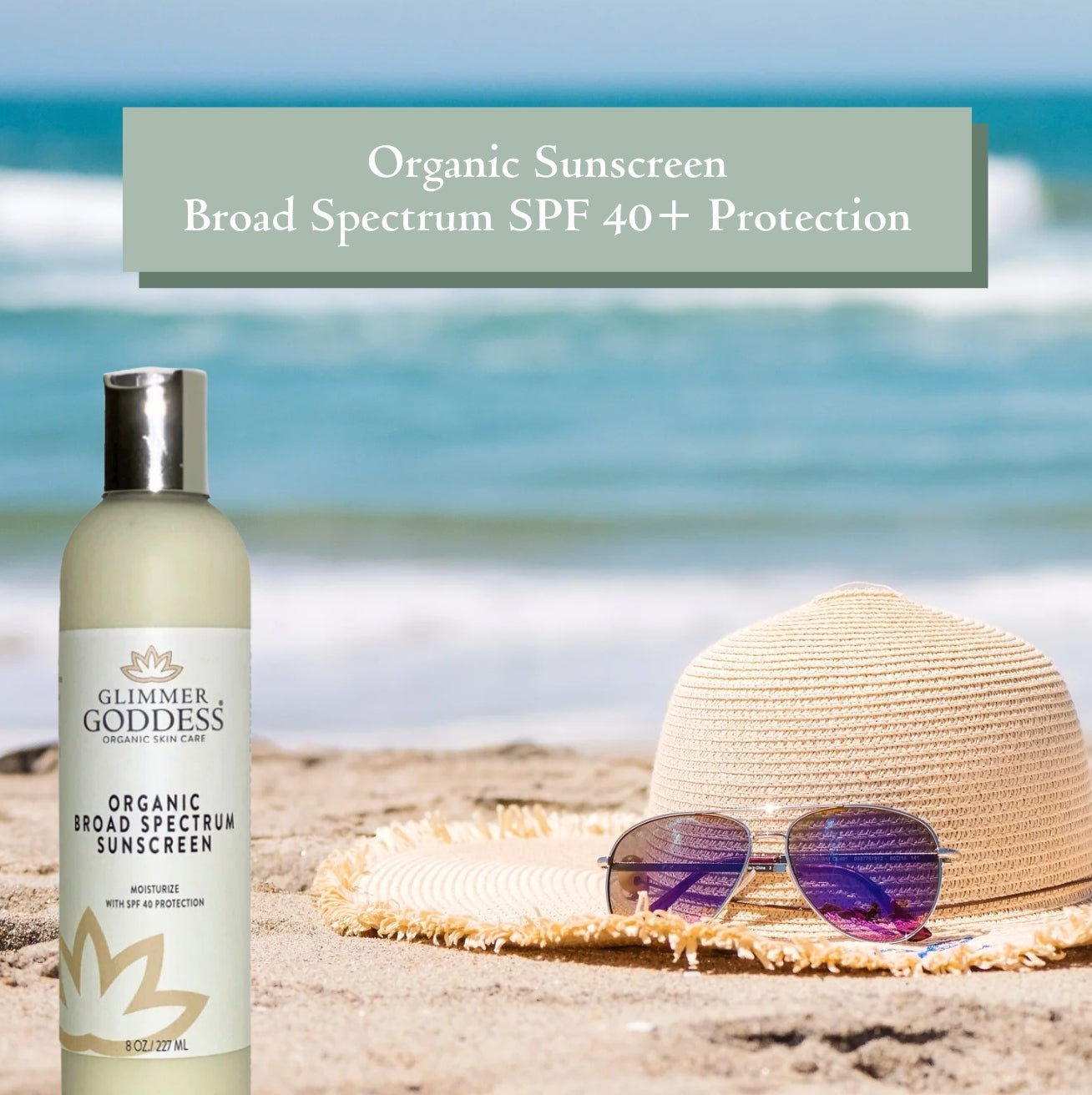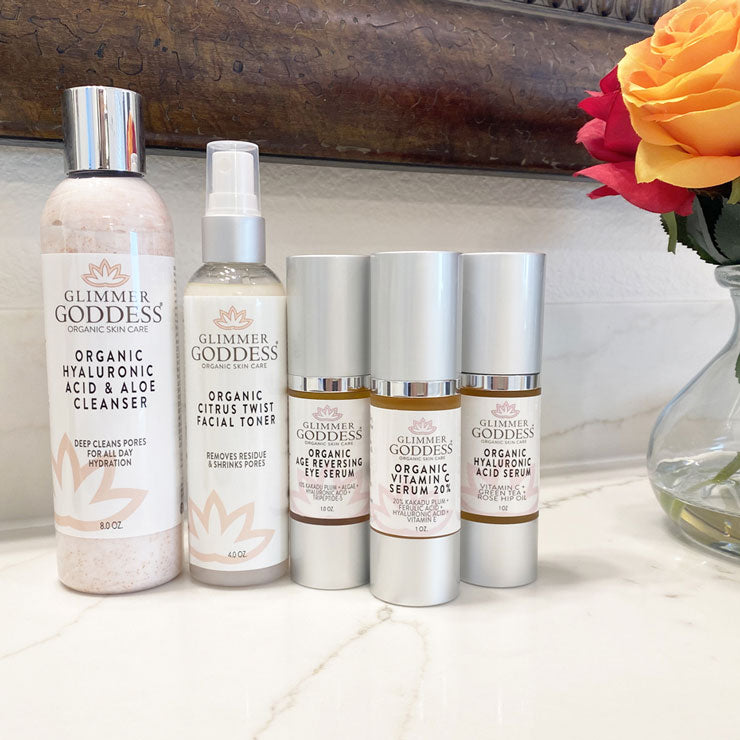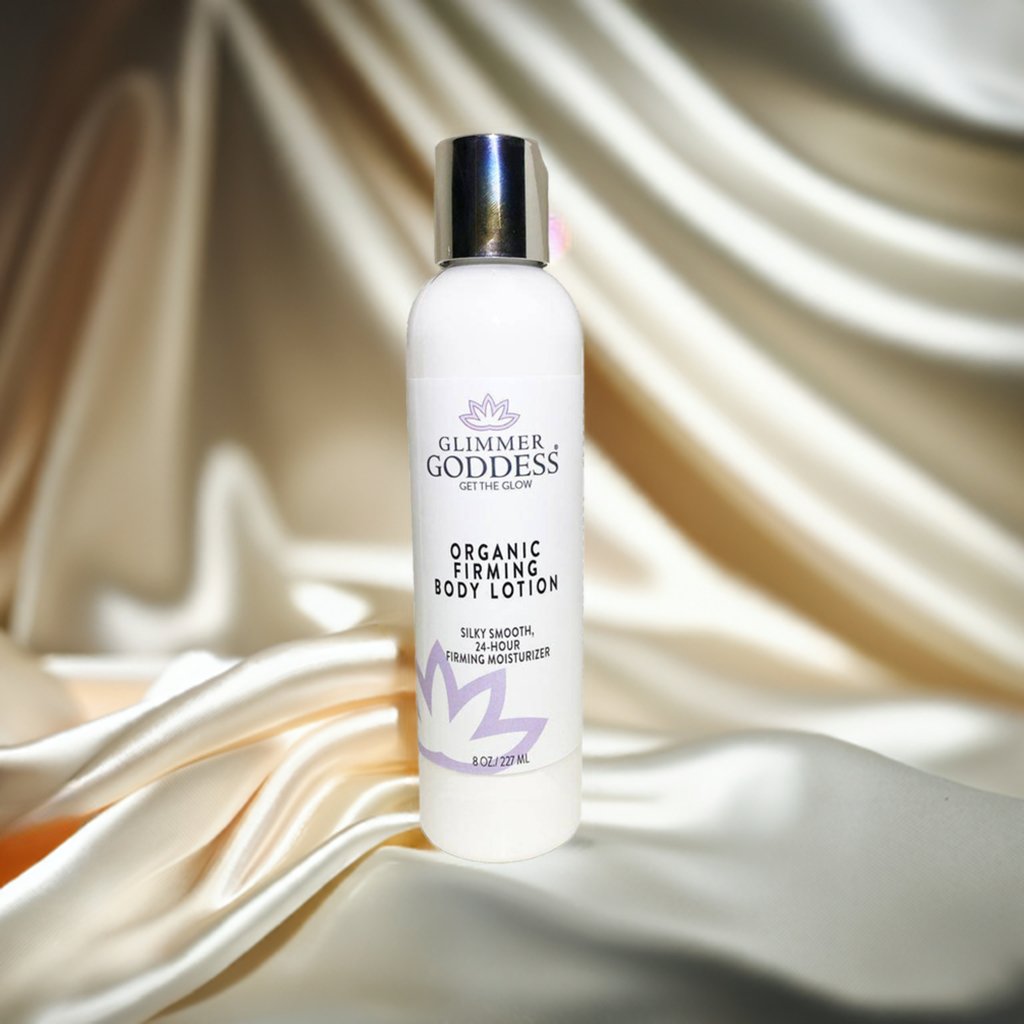
# Tips in Creating the Best Summer Skincare Routine
As summer approaches, every beauty enthusiast knows it's time to refresh and adapt your skincare routine for the warmer months. Achieving and maintaining glowing skin during the summer requires specific steps to combat humidity, sun exposure, and potential irritation. In this guide, we will explore the key steps for prepping your skin for the summer, essential ingredients to incorporate, and tips for effective sun protection. Let's dive into your ultimate skincare routine for a radiant complexion all summer long!
Glowing Skin All Summer Long: Your Ultimate Guide
What Are the Key Steps in a Summer Skincare Prep?
As the summer months approach, it's time to revamp your skincare routine to keep your complexion radiant and healthy. Preparing your skin for the warmer weather can help you achieve a gorgeous, sun-kissed glow all season long.
Transitioning your skincare routine from spring to summer is essential for maintaining a flawless appearance. Here are the key steps to get your skin summer-ready:
- Exfoliate regularly to slough off dull, flaky skin and reveal a brighter, more even complexion. Look for a gentle, physical or chemical exfoliant that won't strip your skin.
- Incorporate a nourishing, oil-free moisturizer that provides lightweight hydration without clogging pores. Opt for a formula with skin-soothing ingredients like aloe vera or green tea.
- Don't forget to protect your skin from harmful UV rays. Apply a broad-spectrum sunscreen with an SPF of 30 or higher every day, even on cloudy days.
- Introduce a hydrating serum or essence to your routine to boost moisture levels and improve skin elasticity. Look for ingredients like hyaluronic acid or peptides.
- Consider adding a weekly face mask to your regimen to deep-clean pores and refine texture. Clay-based masks or ones with brightening ingredients like vitamin C can work wonders.
By following these essential steps, you'll set your skin up for a summer of radiance and resilience, allowing you to confidently embrace the warm, sunny days ahead.
How Do You Adjust Your Night Routine for Warmer Nights?
As the temperature rises, your nighttime skincare routine may need a few adjustments to keep your complexion balanced and comfortable. Adapting your regimen to the changing seasons can ensure your skin stays healthy and glowing all summer long.
Making a few simple tweaks to your evening routine can help you achieve a fresh, dewy complexion even on the hottest summer nights:
- Swap out your heavy, creamy moisturizer for a lightweight, gel-based formula that won't feel too thick or occlusive on your skin. Look for hydrating yet oil-free ingredients like hyaluronic acid or aloe vera.
- Consider incorporating a soothing, clay-based face mask or a deep-cleansing treatment a few times a week to help unclog pores and mattify shine. Be sure to follow up with a hydrating serum or essence to replenish moisture.
- Introduce a refreshing facial mist or essence to use throughout the night. These products can help keep your skin feeling cool, calm, and comfortable as the temperature rises.
- If your skin tends to get oily in the summer, consider using a mattifying primer or blotting papers to control excess shine and give your complexion a more refined, poreless appearance.
By making these adjustments to your nighttime routine, you can ensure your skin stays balanced, hydrated, and radiant all summer long, even on the warmest evenings.
What Ingredients Should You Avoid in Hot Weather?
As the mercury rises, it's important to be mindful of the products and ingredients you're using on your skin. Certain formulas and components can exacerbate issues like sensitivity, dryness, and irritation during the hot, humid summer months. Knowing which ingredients to steer clear of can help you maintain a healthy, glowing complexion all season long.
Here are some common skincare ingredients you may want to avoid or use with caution in the summer heat:
- Alcohol-based products: Toners, astringents, and some cleansers containing alcohol can strip your skin of its natural oils, leading to dryness and irritation.
- Heavy, occlusive moisturizers: Thick, creamy moisturizers may feel too heavy and clogging on the skin during the summer. Opt for lightweight, oil-free formulas instead.
- Harsh exfoliants: Aggressive physical or chemical exfoliants can cause redness, inflammation, and increased sun sensitivity. Stick to gentle, hydrating exfoliants.
- Retinoids: Retinol and retinoids can make your skin more photosensitive, increasing your risk of sunburn. Use these ingredients with caution and always follow with sunscreen.
- Fragrances: Synthetic fragrances can irritate sensitive skin, especially in hot, humid conditions. Look for fragrance-free or naturally-scented products.
By being mindful of these potentially problematic ingredients, you can curate a summer-friendly skincare routine that keeps your complexion healthy, balanced, and glowing all season long.
Unlocking the Secrets of Effective Sun Protection: Your Ultimate Sunscreen Guide
What SPF Do You Really Need for Summer Activities?
When it comes to protecting your skin from the sun's harmful rays, choosing the right SPF (Sun Protection Factor) can make all the difference. Whether you're hitting the beach, going for a hike, or simply enjoying some outdoor time, understanding the appropriate SPF for your activities is crucial.
The Importance of SPF: More Than Just a Number
- SPF measures a sunscreen's ability to protect your skin from UVB (ultraviolet B) rays, which are the primary cause of sunburns.
- Higher SPF numbers indicate a greater percentage of UVB rays that the sunscreen can block, with SPF 30 blocking 97% of UVB rays and SPF 50 blocking 98% of UVB rays.
- However, it's important to note that SPF does not measure protection against UVA (ultraviolet A) rays, which can also cause long-term skin damage and premature aging.
Selecting the Right SPF for Your Needs
- For everyday use, an SPF of 30 or higher is generally recommended, as it provides sufficient protection for most indoor and outdoor activities.
- For extended outdoor activities, such as swimming, hiking, or engaging in sports, a higher SPF of 50 or even 70 is advised to ensure adequate coverage and prevent sunburns.
- Those with fair skin or a history of skin cancer may benefit from using an SPF of 50 or higher, as they are more susceptible to sun damage.
Considering Your Skin Tone and Sun Exposure
- Individuals with lighter skin tones tend to burn more easily and require a higher SPF compared to those with darker skin tones.
- The intensity and duration of sun exposure also play a crucial role in determining the appropriate SPF. The more time you spend in direct sunlight, the higher the SPF you'll need to protect your skin.
Remember, no sunscreen can provide 100% protection, so it's essential to combine sunscreen use with other sun-safe practices, such as seeking shade, wearing protective clothing, and limiting midday sun exposure.
Are Chemical or Mineral Sunscreens Better for Your Skin?
When it comes to sunscreen, the choice between chemical and mineral formulas can be a bit confusing. Both types have their own unique characteristics and benefits, and understanding the differences can help you make an informed decision about the best option for your skin.
Chemical Sunscreens: Absorbing UV Rays
- Chemical sunscreens work by absorbing UV radiation and converting it into heat, which is then released from the skin.
- Common chemical active ingredients include avobenzone, oxybenzone, and octinoxate, which are effective in blocking both UVA and UVB rays.
- Chemical sunscreens are often lightweight, easy to apply, and less visible on the skin compared to mineral sunscreens.
Mineral Sunscreens: Reflecting UV Rays
- Mineral sunscreens, also known as physical sunscreens, use active ingredients such as zinc oxide and titanium dioxide to physically block and reflect UV rays.
- These sunscreens create a barrier on the skin's surface, preventing the sun's rays from penetrating and causing damage.
- Mineral sunscreens are generally considered more natural and less irritating, making them a good choice for those with sensitive skin.
Considerations for Choosing Between Chemical and Mineral Sunscreens
- Skin type: Mineral sunscreens are often recommended for those with sensitive skin, as they are less likely to cause irritation or allergic reactions.
- Environmental concerns: Some chemical sunscreen ingredients, such as oxybenzone, have been linked to potential environmental and coral reef damage, making mineral sunscreens a more eco-friendly option.
- Personal preference: The texture, finish, and feel of the sunscreen can also be a significant factor in your decision, as some people prefer the lightweight, non-greasy nature of chemical sunscreens, while others prefer the more natural and protective properties of mineral formulas.
Ultimately, the choice between chemical and mineral sunscreens comes down to your individual skin needs, environmental concerns, and personal preferences. It's worth experimenting with both types to find the one that provides the best protection and feels most comfortable on your skin.
How Often Should You Reapply Sunscreen?
Proper sunscreen application is crucial for effective sun protection, and reapplying at the right intervals is just as important as choosing the right SPF. Knowing how often to reapply your sunscreen can help you ensure that your skin stays shielded from the sun's harmful rays throughout the day.
The Importance of Reapplying Sunscreen
- Sunscreen effectiveness can diminish over time due to various factors, such as sweat, water exposure, and normal skin shedding.
- Reapplying sunscreen at regular intervals helps to maintain a consistent and effective level of protection, preventing sunburns and long-term sun damage.
Recommended Reapplication Intervals
- As a general rule, it's recommended to reapply sunscreen every 2 hours when spending time outdoors.
- For activities that involve water, such as swimming or water sports, sunscreen should be reapplied more frequently, approximately every 40-80 minutes.
- If you're engaging in activities that cause heavy sweating, it's important to reapply sunscreen more often to ensure continuous protection.
Factors to Consider
- Sunscreen type: Waterproof or water-resistant sunscreens may require less frequent reapplication compared to non-water-resistant formulas.
- Skin type: Individuals with oily or acne-prone skin may need to reapply sunscreen more often, as the product can be more easily removed or absorbed by the skin.
- Sun intensity: On particularly sunny or high-UV days, reapplying sunscreen more frequently is recommended to maintain optimal protection.
Proper Reapplication Technique
- When reapplying sunscreen, be sure to apply a generous, even layer to all exposed skin, including areas that may have been missed during the initial application.
- Pay close attention to often-overlooked areas, such as the lips, ears, around the eyes, and the scalp (if you have thin or no hair).
- Don't forget to reapply sunscreen after towel-drying, sweating, or engaging in any water-based activities.
Consistent and proper reapplication of sunscreen is the key to ensuring your skin stays protected throughout the day. By following these guidelines, you can enjoy the sun with confidence, knowing you're doing everything you can to keep your skin safe.
Soothing and Restoring Your Skin After Sun Exposure
What Are the Best Soothing Ingredients for Sun-Damaged Skin?
After a day in the sun, your skin may feel dry, irritated, and even painful. Fortunately, there are several soothing ingredients that can help calm and repair sun-damaged skin.
Aloe Vera
- Aloe vera is a natural skin-soothing powerhouse, packed with vitamins, minerals, and antioxidants that can help reduce inflammation and promote healing.
- The cooling, gel-like texture of aloe vera provides an instant relief for sunburned skin, making it a go-to ingredient for after-sun care.
- Aloe vera also contains compounds that can stimulate collagen production, which can help repair the skin's barrier and prevent long-term damage.
Chamomile
- Chamomile is a renowned anti-inflammatory herb that can help soothe and calm irritated skin.
- The active compounds in chamomile, such as apigenin and luteolin, have been shown to have potent anti-inflammatory and antioxidant properties.
- Using chamomile-infused products, like lotions or serums, can help reduce redness, swelling, and discomfort associated with sun exposure.
Green Tea
- Green tea is rich in polyphenols, which are powerful antioxidants that can help protect the skin from free radical damage caused by UV exposure.
- The anti-inflammatory properties of green tea can also help alleviate the symptoms of sunburn, such as burning and stinging sensations.
- Incorporating green tea-based products into your after-sun routine can help support the skin's natural healing process.
By incorporating these soothing ingredients into your post-sun care routine, you can help calm inflammation, reduce irritation, and promote the healing of sun-damaged skin.
How Can You Hydrate and Restore Your Skin After a Day in the Sun?
Prolonged sun exposure can lead to dehydration, dryness, and a compromised skin barrier. Replenishing moisture and restoring the skin's protective layers are essential for recovering from sun damage.
Hyaluronic Acid
- Hyaluronic acid is a powerful humectant that can draw moisture into the skin and keep it there.
- After sun exposure, the skin's moisture levels are often depleted, and hyaluronic acid can help rehydrate and plump up the skin.
- Using a hyaluronic acid-based serum or moisturizer can help restore the skin's suppleness and improve its overall appearance.
Ceramides
- Ceramides are natural lipids that are essential for maintaining the skin's barrier function.
- Sun exposure can disrupt the skin's protective barrier, leading to trans-epidermal water loss and increased vulnerability to irritants.
- Incorporating ceramide-rich products into your routine can help rebuild and strengthen the skin's barrier, locking in moisture and shielding it from further damage.
Omega-3 and Omega-6 Fatty Acids
- Omega-3 and omega-6 fatty acids are anti-inflammatory compounds that can help soothe and nourish sun-damaged skin.
- These essential fatty acids can improve the skin's lipid content, helping to restore its natural barrier and prevent water loss.
- Foods rich in omega-3 and omega-6, such as fatty fish, nuts, and avocados, can be beneficial for replenishing the skin's resources after sun exposure.
By prioritizing hydration and barrier repair with these restorative ingredients, you can help your skin recover from the harsh effects of sun exposure and regain its healthy, radiant appearance.
What DIY Remedies Can Help Cool Down Irritated Skin?
In addition to using soothing and hydrating skincare products, there are some simple DIY remedies you can try at home to calm and cool down irritated, sun-damaged skin.
Aloe Vera Gel
- As mentioned earlier, aloe vera is a powerful soothing agent for sunburned skin.
- You can use the gel directly from a fresh aloe vera plant or opt for a high-quality, pure aloe vera gel product.
- Apply the aloe vera gel liberally to the affected areas, and let it absorb into the skin to provide instant relief and cooling.
Cucumber Slices
- Cucumbers are known for their refreshing and hydrating properties, making them an excellent choice for soothing irritated skin.
- Slice a cucumber and place the cool slices directly on the sunburned or inflamed areas.
- The natural compounds in cucumbers, such as vitamins C and K, can help reduce redness and swelling.
Oatmeal Bath
- Oatmeal is a natural anti-inflammatory that can help calm and soothe irritated skin.
- To create an oatmeal bath, grind some whole oats into a fine powder and add it to your bathwater.
- Soak in the oatmeal-infused water for 15-20 minutes, allowing the compounds in the oats to work their magic on your skin.
Potato Slices
- Potatoes are rich in starch, which can have a cooling and soothing effect on sunburned skin.
- Slice a raw potato and place the cool slices directly on the affected areas.
- The natural enzymes in potatoes may also help reduce inflammation and promote healing.
These simple DIY remedies can provide immediate relief and help cool down the uncomfortable symptoms of sun-damaged skin. Incorporate them into your post-sun care routine for a soothing and restorative experience.
In conclusion, by utilizing the power of soothing, hydrating, and restorative ingredients, along with DIY remedies, you can effectively care for your sun-exposed skin and help it recover quickly. Remember to be gentle, patient, and consistent in your approach to achieve the best results.
Radiant Skin Solutions: Discover Glimmer Goddess' Luxurious Organic Beauty Products
Organic After Sun Lotion & Tan Extender + Luminizing Shimmer
This highly moisturizing organic after sun lotion wards off skin burn discomfort and skin peeling. It heals skin and extends the length of your tan, all while giving your skin a luminizing glow.
Glimmer Goddess' Organic After Sun Lotion is a must-have for all sun-loving goddesses! 🌞 This soothing formula provides long-lasting relief and extends your sun-kissed glow.
- It speeds up the healing of sunburned or wind-burned skin, soothing and conditioning the skin for a soft, smooth feel.
- The luminizing shimmer infuses your skin with a natural-looking radiance, perfect for accentuating your sun-kissed tan.
- It prevents or reduces peeling, keeping your skin hydrated and your tan looking fresh for weeks.
- Enriched with antioxidant vitamins B, C, and E, as well as nourishing ingredients like aloe vera, pineapple, papaya, and sweet almond oil, it deeply moisturizes and conditions the skin.
Organic Reef-Safe Sunscreen - Broad Spectrum SPF 40
Introducing our Glimmer Goddess Organic Reef-Safe Sunscreen, a superior choice for your skin and the environment.
Protect your skin and the planet with our Organic Reef-Safe Sunscreen! 🌊 Crafted with certified organic ingredients, it provides maximum sun defense while nourishing your skin.
- Formulated with non-nano, uncoated zinc oxide, along with natural plant oils like red raspberry seed oil and pomegranate seed oil, it offers a gentle yet effective shield against UVA/UVB rays.
- The lightweight, quick-drying formula absorbs rapidly without leaving a greasy residue, making it perfect for active lifestyles.
- It's waterproof and sweat-resistant for at least 40 minutes, ensuring long-lasting protection.
- Deeply moisturizing your skin, this sunscreen keeps you hydrated and protected under the sun's rays.
- Reef-safe and kind to the environment, it's the conscious choice for sun-loving Goddesses who want to protect both their skin and the planet.
Organic Whipped Sugar Fondant Exfoliating Body Scrub - Crepey Skin Treatment
Enliven your skin with Glimmer Goddess Organic Whipped Sugar Fondant Exfoliating Body Scrub! Our Sugar Scrub gently exfoliates, removing dead skin cells and boosting collagen production, which helps improve skin elasticity and reduce the appearance of crepey skin for a smoother, firmer look.
Transform your skin with our Organic Whipped Sugar Fondant Exfoliating Body Scrub! 🍯 This luxurious scrub gently exfoliates, hydrates, and nourishes for radiant, smooth, and even skin.
- Infused with coconut oil, sweet almond oil, and vitamin E, it deeply moisturizes and nourishes the skin.
- Enriched with glycolic acid, it helps to unclog pores and improve skin texture, reducing the appearance of crepey skin.
- The whipped, fondant-like texture creates a spa-like experience, leaving your skin feeling soft, smooth, and rejuvenated.
- Boasting a blend of natural exfoliants, it removes dead skin cells and boosts collagen production, improving skin elasticity for a firmer, more youthful appearance.
- Say goodbye to dull, uneven skin and hello to a radiant, glowing complexion with this luxurious body scrub.
Q&A
What are the key steps to prepare my skin for summer?
Key steps include regular exfoliation, using an oil-free moisturizer, daily application of broad-spectrum sunscreen, adding a hydrating serum, and incorporating weekly face masks.
How should I adjust my night routine for warm nights?
Swap heavy moisturizers for lightweight gels, incorporate clay masks to unclog pores, use facial mists to hydrate, and consider mattifying products if you experience oily skin.
Which ingredients should I avoid in summer?
Avoid alcohol-based products, heavy moisturizers, harsh exfoliants, retinoids during the day, and synthetic fragrances that can irritate your skin.
What SPF is best for summer activities?
For everyday use, SPF 30 or higher is recommended; for extensive outdoor activities, consider SPF 50 or higher. Always tailor your SPF choice based on your skin type and sun exposure.
Are chemical or mineral sunscreens better for my skin?
Mineral sunscreens are generally better for sensitive skin as they are less irritating, whereas chemical sunscreens are lighter and easier to apply. Your choice depends on personal preference and skin sensitivity.
How often should I reapply sunscreen?
Reapply sunscreen every 2 hours, or more frequently if swimming or sweating. For water activities, reapply approximately every 40-80 minutes.
What soothing ingredients are best for sun-damaged skin?
Aloe vera, chamomile, and green tea are excellent choices for soothing and healing sun-damaged skin, reducing inflammation and promoting recovery.
How can I hydrate my skin after sun exposure?
Use products with hyaluronic acid, ceramides, and omega fatty acids to deeply hydrate and restore the skin's barrier after sun exposure.
What DIY remedies can cool down irritated skin?
Try applying aloe vera gel, cucumber slices, an oatmeal bath, or raw potato slices to soothe and cool down sunburned or irritated skin.
In conclusion, a well-planned summer skincare routine not only enhances your glow but also protects your skin from the harsh elements of summer. By incorporating mild exfoliators, hydrating serums, and effective sun protection, you can maintain a radiant complexion. Avoiding certain harsh ingredients will further ensure your skin remains healthy and balanced. Embrace these tips and enjoy radiant skin all summer long!







